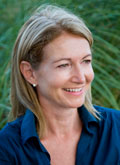Poetry filled the air last weekend at the NCTE Convention in Boston. One of the highlights for me was hearing Georgia Heard, Tom Romano, and Linda Rief speak about the importance of “Keeping Poetry at Our Core.”
Georgia Heard began the session by pointing out that “poetry is in every single strand of the CCSS.” She urged us to grow poetry slowly, not to wait until April, but to make a place for poetry in our classrooms every day. “Poetry changes us,” she said, “it changes our writing and our living.”
With these thoughts about the importance of poetry in mind, Heard went on to give us steps to guide our work. The first step is to “choose poems that are accessible, non-threatening, and relevant” to our students. Once we’ve done this, the next crucial step is to help students connect with a poem by guiding them “toward finding themselves and their lives inside the poem.”
Heard also shared that we have to give our students the tools they need to analyze and interpret poetry. Through close reading and asking questions such as “How does this poem relate to your life?” and “What is the impact of this poem on your life?” students can “unlock the door of a poem.” Then they will be able to analyze the meaning and craft of a poem for other layers of meaning.
Heard inspired me to be even more mindful about helping my colleagues share poetry with students when she closed her part of the session with the wisdom of Matthew Fox:
“The Celtic peoples…insisted that only the poets could be teachers. Why? I think it is because knowledge that is not passed through the heart is dangerous.”
This quote can also be found in Georgia’s book, Awakening the Heart (Heinemann, 1999, pg. 118). As I revisited my copy of this classic, I rediscovered this poem by Roque Dalton, another reminder that poetry is for everyone.
“Like You ”
Like you I
love love, life, the sweet smell
of things, the sky-blue
landscape of January days.
And my blood boils up
and I laugh through eyes
that have known the buds of tears.
I believe the world is beautiful
and that poetry, like bread, is for everyone.
And that my veins don’t end in me
but in the unanimous blood
of those who struggle for life,
love,
little things,
landscape and bread,
the poetry of everyone.
(translated by Jack Hirschman)
Tom Romano and Linda Rief were just as eloquent and inspiring, so, in the weeks to come, they will each have their own well-deserved post. For more inspiring poetry posts, NCTE-related and otherwise, be sure to visit Carol’s Corner, for the Poetry Friday Round Up.



I love, love, love Georgia Heard’s thinking and really appreciate you sharing it. I have AWAKENING THE HEART, but had forgotten all about this poem, which I remember marking when I first read it. I’m looking forward to your posts about Romano and Rief, I know they will also be terrific.
LikeLike
I hear you about the need to make poetry more accessible to children. I have a lot of avid and talented readers who seem to have a loathing for poetry – they dislike how ‘obscure’ it is, wanting a spade to be called a spade for clarity’s sake – not realizing the glory of ambiguities, the beauty in infusing one’s understanding to seemingly-concealed truths that are simply there for everyone’s discovery and awakenings. Thank you for sharing your experiene at the NCTE.
LikeLike
I’ve used that poem often, Catherine, what a wonderful mentor Georgia Heard is, in her speaking & in her books. I ordered the new ones for my primary teachers! Thank your for the wonderful recap-I didn’t take the detailed notes you did, so enjoyed hearing these words all over again! Hope you had a lovely Thanksgiving!
LikeLike
I especially like:
The first step is to “choose poems that are accessible, non-threatening, and relevant” to our students. Once we’ve done this, the next crucial step is to help students connect with a poem by guiding them “toward finding themselves and their lives inside the poem.”
Thanks for sharing your thoughts about this session with us!
LikeLike
One of the best parts of NCTE was meeting you in person! Now I get to go back to this session over and over again and remember it through your eyes! YAY!
LikeLike
I have that book, also, and will revisit it again. I appreciate the wisdom of Georgia Heard. I plan to reference this post to my colleagues. Thanks!
LikeLike
“Knowledge that is not passed through the heart is dangerous.” <– love this! What an inspiring session… thanks for passing it on through your notes and your heart.
LikeLike